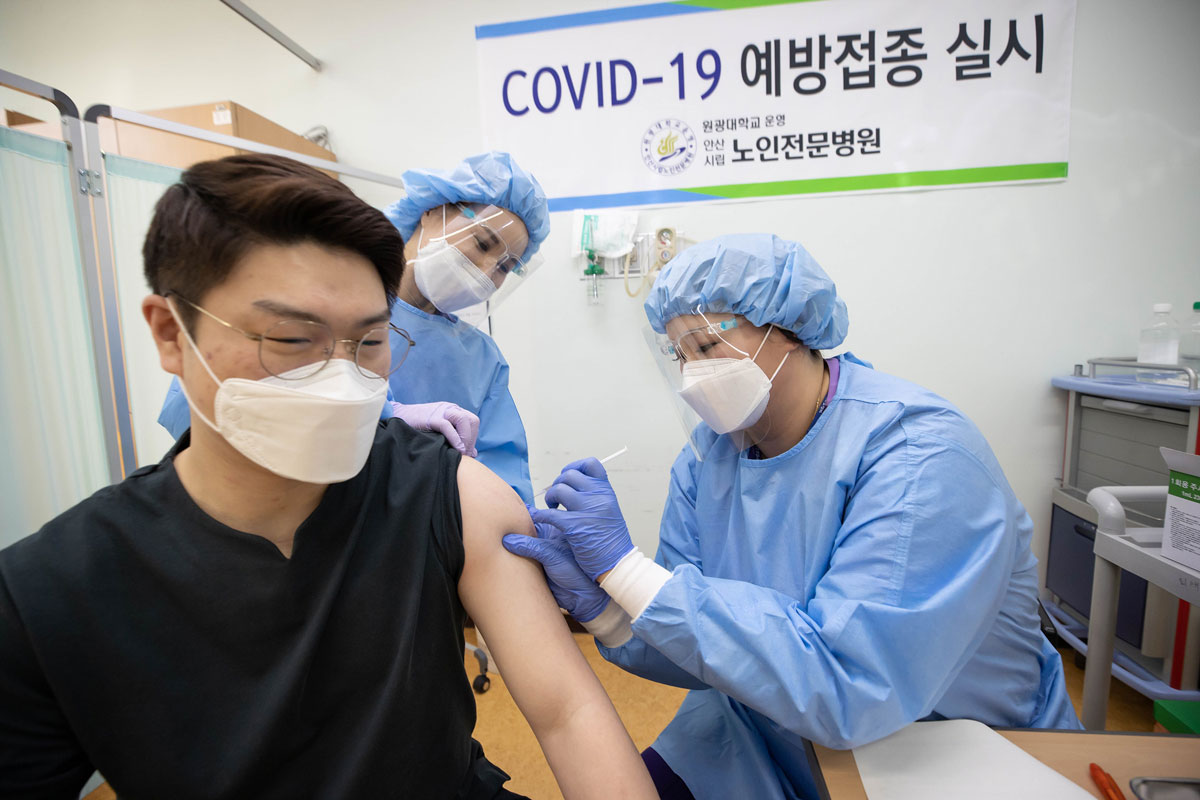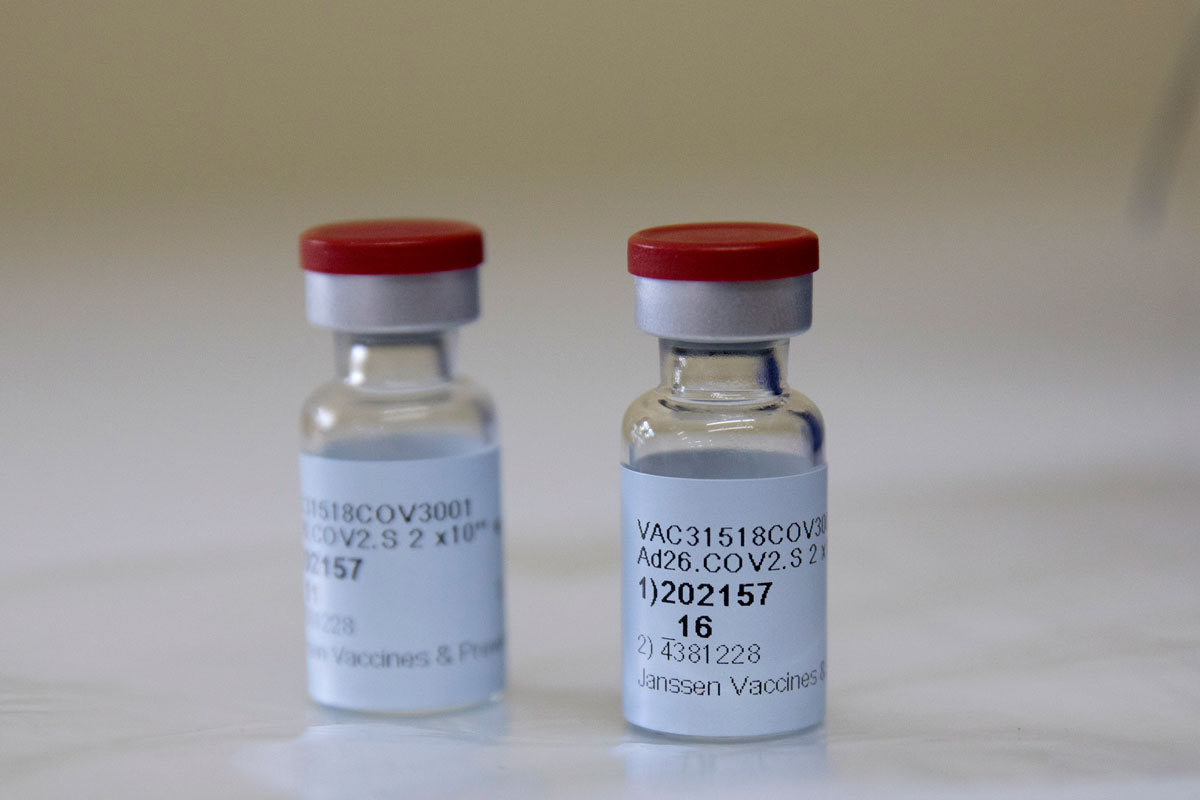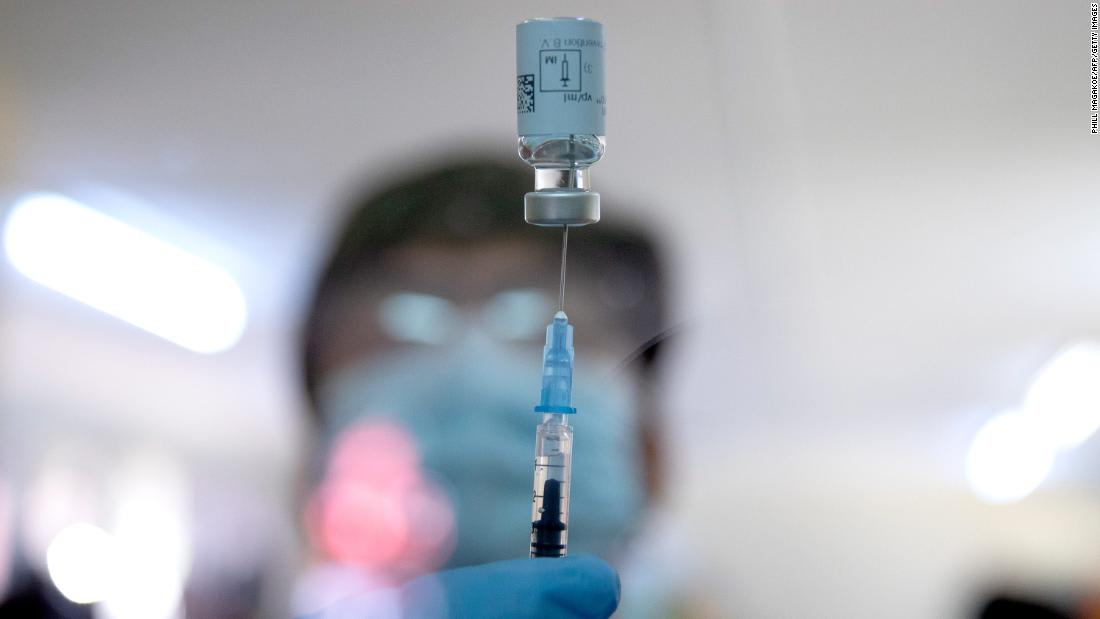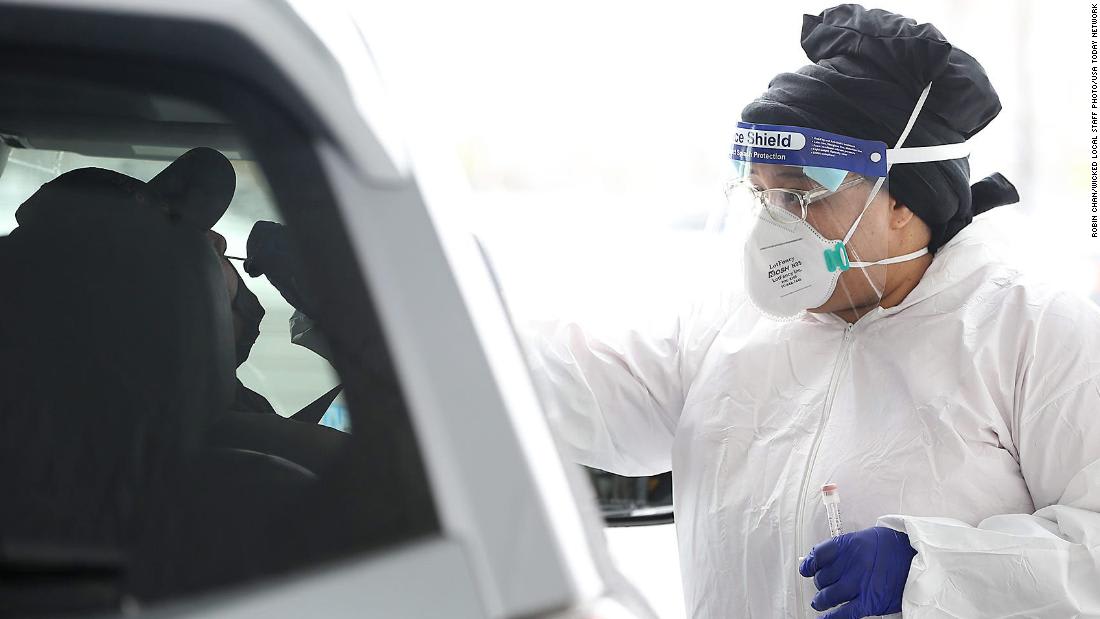
South Korea began its vaccine rollout on Friday as health authorities extended current social distancing measures and bans on gatherings of five or more people until March 14, according to Health Ministry Spokesperson Son Young-rae.
Son emphasized that people should still abide by the measures while the government strives to safely and effectively form herd immunity. He urged people to trust the safety and effectiveness of the vaccine as explained by health authorities and actively receive it.
South Korean President Moon Jae-in visited a vaccination clinic on Friday to encourage medical workers on the frontline of vaccination and anti-virus work as he inspected the preparedness and operations, according to the presidential Blue House.
South Korea reported 406 new Covid-19 cases from Thursday, increasing the total to 88,922, according to KDCA. Four fatalities were added, bringing the death toll to 1,585.






